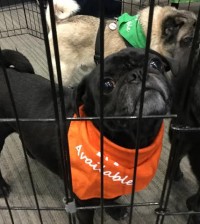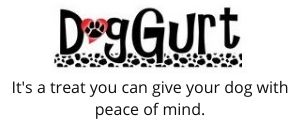- Do you subscribe to Dharma Dog Training’s Newsletter? You should.
- A Unique Campaign from The Humane Society of the United States
- Rabid bats in Omaha- Stay safe, prepared with these tips
- Springtime Activities in Omaha
- Mill Dog Monthly from Bailing Out Benji
- World Spay Day, Legislative Alert in Nebraska
- Attend the Nebraska Rescue Council’s monthly meeting this Saturday
- Five Hard-to-Ignore Reasons to Adopt!
- Paws in Pink to Benefit Breast Cancer Foundation
- VCA, Inc. Acquires MidWest Vet Specialists from Kansas State University
USDA pulls records, protects animal abusers

In recent days, you may have heard about or seen headlines for a story regarding the United States Department of Agriculture (USDA) and its pulling of animal welfare information from its website.
Unless you have studied animal rights, what the USDA has to do with commercial breeding facilities we call “puppy mills”, and other aspects of the relationship between animal advocates and the USDA, you might not have a good feel for why this story is important.
That’s why we’ve compiled introductory information on this issue for you here on Pets in Omaha.
The first thing you need to know is that the information pulled from the USDA’s online database included thousands of records. These records detailed animal welfare reports from places such as laboratories, circuses, universities, zoos, and commercial dog breeding facilities.
The information that was pulled, under the Animal Welfare Act, allowed animal activists, journalists, and the public to act as watchdogs when it came to animals.
Without easy access to this information, animal welfare advocates fear that it will be easier for animal abusers to conceal history, crimes, and negative marks they’ve received.
The second thing you need to know is that the USDA cited “privacy concerns” as the reason for the information’s removal. It’s clear whose privacy the USDA is concerned with, it seems- animal abusers.
Washington Post writer Karlin Brulliard reported that last month, Mindy Patterson, the president of the Cavalry Group, accused the USDA of “succumbing to the pressure of animal rights extremists.”
The Cavalry Group aims to protect and defend animal enterprises and Patterson believes the enterprises are being unfairly watched. She said that public USDA records allowed animal activist groups like People for the Ethical Treatment of Animals (PETA) and the Humane Society to blacklist companies. Another way of looking at it is saying the Humane Society and PETA are concerned with helping people who love animals make better consumer choices.
The last thing you need to know is that now to receive the previously available information, inquirers will have to submit a Freedom of Information Act (FOIA) request. These requests take a long time to complete and are an attempt at deterring animal activists from checking up on animal abusers. Red tape will slow the exchange of information for sure.
The Risk Management Agency (RMA), reports that businesses are required by law to respond to these FOIA requests within 20 business days. If your request is denied you have the right to appeal within 45-days of the rejection.
Therefore, it could take weeks, or even months, to receive information and this is one of the main concerns for advocates.
“The public is no longer going to be able to quickly learn which commercial dog breeders, horse trainers, which roadside zoos, which research labs have horrible animal welfare track records,” John Goodwin, who runs the Stop Puppy Mills Campaign at the Humane Society, said.
The Humane Society also pointed out that documents are paid for by taxpayer money and should be readily available if needed.
If you want to let the USDA that you don’t agree with the change, you can sign a petition demanding the “USDA Stop Hiding Animal Welfare Records.” The link can be found here. Also, you can call your local government representatives or the USDA to voice concerns. Call the USDA at (844) 820-2234.
Here’s some good news: Russ Kick of Memory Hole 2 has preserved much of the USDA-removed data and it can be found here.
Also, animal advocates have a strong voice aiding them in this unjust purging of information. Rachel Maddow of MSNBC has recently spoken out against the removal and Russ Kick is intrepidly leading the restoration of the once-public data watchdogs use to expose bad breeders and pet stores that sell their dogs. “The USDA just disappeared records on dog breeders,” Maddow said in a recent MSNBC episode of The Rachel Maddow Show. In the U.S., you can’t sell puppies to pet stores without a clean inspection record from the USDA. Without an announcement, the data was suddenly gone. The info animal advocates used to hold people accountable and save dogs from the horrors of mills is now reappearing thanks to Russ Kick. Now, he doesn’t have all the info that was removed, but much from the last decade or so is available of his website.
Pushback will be and is already strong on this issue. The new administration will surely be pressed hard to restore what was and should be public information. This story is also developing , so stay tuned, keep your ears and eyes open, and follow this as it all unfolds.
And here’s Maddow’s advice for those who are concerned about the new leadership in Washington: Find out what you’re good at and do that to help your country. Russ Kick is good at spotting things that he’s surprised to see published from the government and saving it. He’s going to be key in fighting for animals.
What are you going to do to help animals and protect information that is essential to protect them?
Related Posts
Latest News
-
What Signs to Look For When My Pet Has a Cold
You have probably heard the expression, “sick as a dog.”...
- Posted 2 weeks ago
- 0
-
How Often Should I Groom My Pet?
Do you have a grooming ritual for your furry friend?...
- Posted 3 weeks ago
- 0
-
From Kibble to Cuisine: Finding the Perfect Food For Your Pet
Do you ever wonder what the difference is between regular...
- Posted 1 month ago
- 0
-
The Essential Guide to Pet Care: Meeting Your Furry Friends Basic Needs
Are you a first-time pet owner and need to know...
- Posted 1 month ago
- 0
-
Say Cheese! Tips for Keeping Your Pet’s Pearly Whites Clean
Did you know that keeping your dog or cat’s teeth...
- Posted 2 months ago
- 0
-
Feeding Frenzy: How Often Should You Fill Your Pet’s Bowl?
Are you unsure how much food to give your dog...
- Posted 2 months ago
- 0
-
How to Prepare Your Pet for Spring
Winter is in full force, but spring will be here...
- Posted 2 months ago
- 0























You must be logged in to post a comment Login